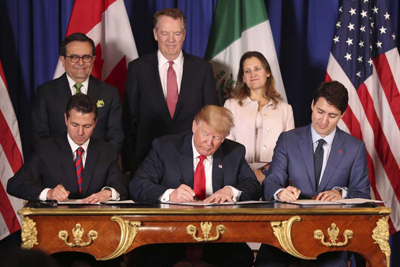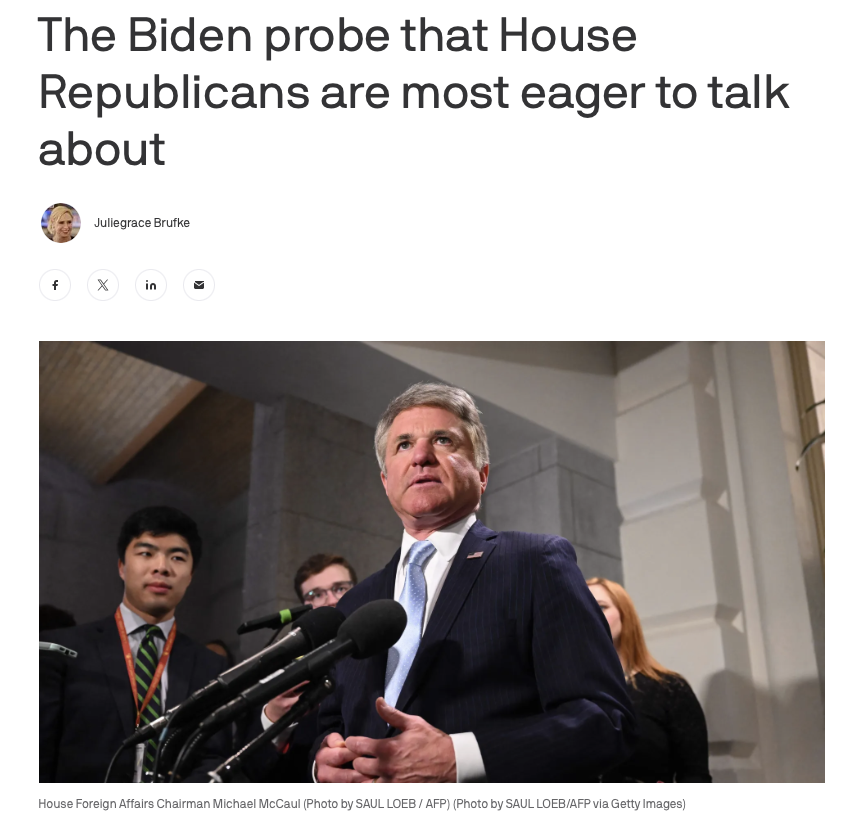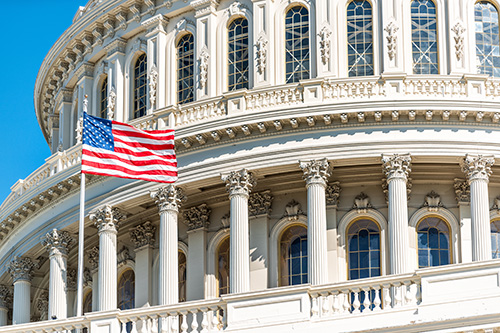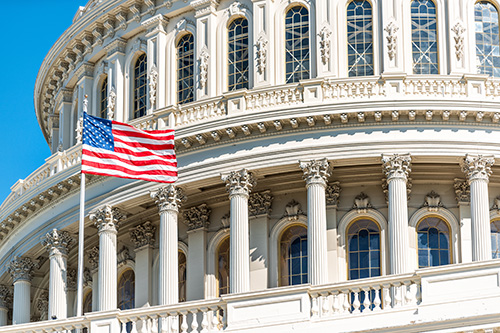Stay in NAFTA While Negotiating What’s Next
 Significant uncertainty exists about the future of the trilateral trade relationship between the United States, Mexico and Canada. NAFTA created one of the world’s largest free trade areas and has had undeniable benefits to the U.S. Unfortunately, we should be prepared for President Donald Trump to make good on his promise to pull out of the agreement.
Significant uncertainty exists about the future of the trilateral trade relationship between the United States, Mexico and Canada. NAFTA created one of the world’s largest free trade areas and has had undeniable benefits to the U.S. Unfortunately, we should be prepared for President Donald Trump to make good on his promise to pull out of the agreement.
In recent months, President Trump has made several decisions that were contrary to our national interests, taking serious steps to withdraw U.S. forces from Syria and Afghanistan. Withdrawing from NAFTA to pressure Congress to support its replacement, the U.S.-Mexico-Canada Agreement (USMCA), would continue this pattern. However, this new agreement is far from having the necessary votes to pass. The Trump administration must address the concerns many in Congress have about several of the new policies in the USMCA as well as some of the president’s trade policies in general.
The world has significantly changed in the 25 years since NAFTA went into effect. A trade agreement made over two decades ago could not have possibly predicted the world we live in now, and that’s why it needs to be updated the right way. The USMCA makes important improvements that should become standards for future trade agreements, including:
- A framework for digital trade in goods and services that bans customs duties on digital products, requires the enactment of anti-spam rules in each country and bars countries from requiring that companies maintain their servers locally instead of in the United States.
- Improved protections for intellectual property that extend patent protection on drugs, require internet service providers to address online violations and provide greater protection against trademark infringement.
- New restrictions on state-owned enterprises that prevent them from pursuing discriminatory practices against commercial competitors, which will help American businesses compete in Canada and Mexico.
- A provision that prevents non-market economies, like China, from unfairly taking advantage of liberalized trade in North America.
Despite these significant improvements, this administration made serious mistakes in pursuing other changes, like its unilateral decision to weaken the investment-state dispute settlement (ISDS) arbitration provisions. Making international arbitration harder and forcing U.S. investors to use Mexican courts will dissuade U.S. companies from pursuing cross-border investment opportunities in Mexico that would create jobs and income in the United States. Weakening ISDS will hurt our economy and make U.S. automakers and energy companies, like those I represent in South and West Texas, less competitive in Canada and Mexico.
There remain significant hurdles to bringing NAFTA into the future. The House has not voted on trade since 2015, when the Republican-controlled House and Senate passed legislation giving President Obama Trade Promotion Authority (TPA) to negotiate new trade agreements. The House passed that bill with exactly 218 votes — 190 Republicans and 28 Democrats. In the ongoing 116th Congress, only 22 of the Democrats and 101 of the Republicans who voted for TPA are still in the House. Even if all 123 vote for the USMCA, the president will have to convince nearly one-third of the remaining members of the Democratic-controlled House to vote ‘Yes,’ which will be an exceptionally tall order.
Additionally, the imposition of Section 232 steel and aluminum tariffs on many U.S. allies complicates how members of Congress view the USMCA because Congress has few other opportunities to weigh in on the president’s trade decisions. Last March, 107 House Republicans sent a letter to President Trump saying that while China engages in unfair trade practices the use of tariffs is the wrong solution to the problem because “tariffs are taxes that make U.S. businesses less competitive and U.S. consumers poorer.” While we must hold countries accountable for their unfair trade practices, we should not disrupt the flow of fairly traded products that American manufacturers and consumers rely on every day.
Pulling out of NAFTA to force an affirmative vote on USMCA would inject unnecessary uncertainty into our economy and be counterproductive to efforts to approve the new agreement. With the USMCA lacking the votes needed for passage in the new Democratic-controlled House, the president and his negotiating team need to address the concerns many in Congress have with the agreement and his trade policies. Working with Congress is a more viable path to success than trying to hold it hostage.








